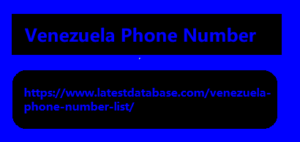Post by account_disabled on Mar 4, 2024 4:31:31 GMT -3
Let's take the keyword "dry dog food" as an example. First, open this keyword in the Keyword Overview tool : Keyword analysis with the Keyword Overview tool Then, scroll down to the “SERP Analysis” section and see the results. s that it doesn't appear in the result URLs. None of the URLs include the word "feed." SERP analysis with Keyword Overview Now let's click on the first URL: the Organic Search tool will open . A quick look at the top keywords for that particular page will confirm that the top keyword within this topic is “dog kibble” – it has a higher search volume and brings much more traffic to the page. The traffic that the keywords bring We can conclude that “dog kibble” will be a better primary keyword than “dry dog food” in this case. We can still use the latter as a secondary keyword. Tip: To learn more about how to optimize your pages for keywords, check out our keyword optimization tips .
Identify and Define Search Intent To compete for any keyword, you need to find out Venezuela Phone Number what kind of content people who Google that keyword expect. In other words: what is the intent of the research? Analyzing and identifying the intent of a search query is probably the most important aspect of keyword research. Traditionally, we distinguish four types of search intent: Navigational: the user searches for a specific page (for example, "arcaplanet website") Informational: The user is looking for general information about a topic (for example, "can dogs eat spicy foods"). Commercial: The user analyzes the various options before making a final decision on purchasing a product (for example, "best dry dog food"). Transactional: the user searches for a specific product or brand with the intention of making a direct purchase (e.g. "puppy dog food").

The intent of the keywords Identifying search intent means targeting the keyword with the right content . So, first, you need to find out the search intent of the keyword. To facilitate this process, all Semrush keyword tools have an “Intent” metric. The “intent” metric on Keyword Magic Tool This way, you can easily filter your keywords based on the four basic categories of search intent right in the keyword tool. Let's go back to the example of our dog food company. Since we are doing keyword research for a blog, we will have the best chance of ranking for keywords with an informational (or informational) search intent. Click on the "Intent" filter and select the search intent category you are interested in: The informational intent on Keyword Magic Tool You will now only see keywords that match the selected intent.
Identify and Define Search Intent To compete for any keyword, you need to find out Venezuela Phone Number what kind of content people who Google that keyword expect. In other words: what is the intent of the research? Analyzing and identifying the intent of a search query is probably the most important aspect of keyword research. Traditionally, we distinguish four types of search intent: Navigational: the user searches for a specific page (for example, "arcaplanet website") Informational: The user is looking for general information about a topic (for example, "can dogs eat spicy foods"). Commercial: The user analyzes the various options before making a final decision on purchasing a product (for example, "best dry dog food"). Transactional: the user searches for a specific product or brand with the intention of making a direct purchase (e.g. "puppy dog food").

The intent of the keywords Identifying search intent means targeting the keyword with the right content . So, first, you need to find out the search intent of the keyword. To facilitate this process, all Semrush keyword tools have an “Intent” metric. The “intent” metric on Keyword Magic Tool This way, you can easily filter your keywords based on the four basic categories of search intent right in the keyword tool. Let's go back to the example of our dog food company. Since we are doing keyword research for a blog, we will have the best chance of ranking for keywords with an informational (or informational) search intent. Click on the "Intent" filter and select the search intent category you are interested in: The informational intent on Keyword Magic Tool You will now only see keywords that match the selected intent.




